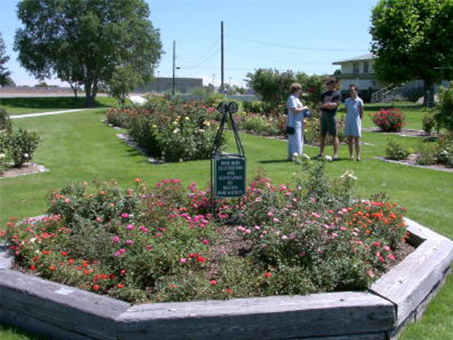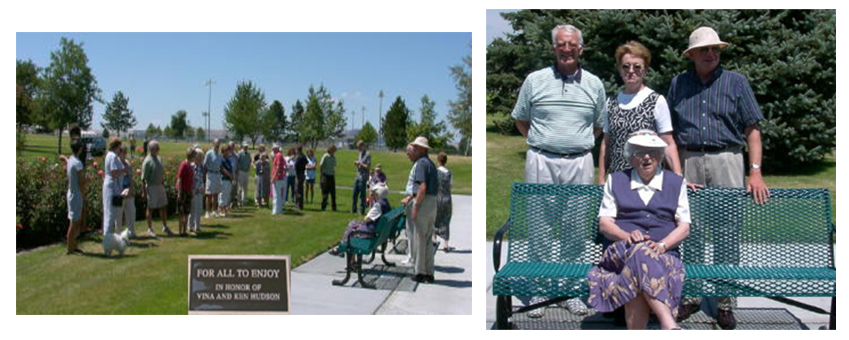L. Scott Park
The Rose Garden Story
by Vina Hudson, Garden Facilitator, TCRS Member
Lawrence Scott Park Rose Garden is funded and maintained by the Tri-City Rose Society. This project started in 1985 and provides a beautiful rose garden which is easily accessed along Canal Drive in Kennewick, WA.

In 1985 the Rose Society and the city of Kennewick got together and decided to have a rose garden in the new park. It would be a public garden and the two entities would work together.
A small committee was formed to select a site and lay out the design. The city built the beds and the Rose Society supplied the roses and the labor to plant them. Many nurseries were contacted and most of the roses were donated. As a result, five beds ended up with once blooming Old Garden Roses. We also got too many of one variety of Hybrid Tea Roses.
About five years ago another committee was formed to study how to make the garden more educational, provide more color all season, and plan for upkeep and possible expansion. It was estimated that it would take about five years to do this, and this is the fifth year (2000).
The first markers to identify roses for the public were metal stakes painted white and lettered with black ink. These were replaced by aluminum metal markers with indented lettering. These markers lie flat and are securely attached to the wooden ties enclosing the beds.
Most of the once blooming roses were removed with the help of the city, and replaced with roses that bloom all season. Each bed is mainly devoted to one type of rose. We have beds for Hybrid Teas and Grandifloras, Floribundas, Polyanthas, Miniatures, Old Garden Roses, David Austin/English Roses, Shrubs and Climbers.
We have revamped five beds and now have a fairly good representation of most types of roses. Beds one and two became overgrown with weeds, so we had the weeds killed last year and replanted the beds this year with shrub type roses, all of which are named. This type of rose costs more than average, but will be worth it. Shrub roses are not readily available locally, so we had to order them from Oregon.
As the years roll on, several workers in the garden are getting old and not in too good health. Thus it is necessary to bring new people on board for maintenance. It really doesn’t take too much time and effort if the work is distributed among several people. We have all the beds assigned this year, and I hope each of you will consider volunteering.

